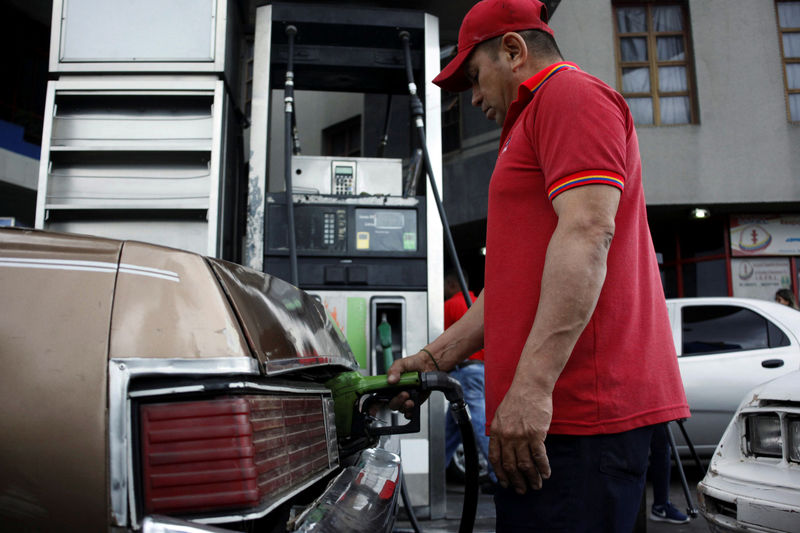By Anggy Polanco
UREÑA, Venezuela (Reuters) - Frustrated Venezuelan drivers faced lengthy lines for gasoline in border states on Tuesday as the government struggled to roll out a new payment system that President Nicolas Maduro says will reduce smuggling of heavily-subsidized fuel.
Maduro says the payment system will pave the way for charging international prices for fuel - a massive increase given that gas is now almost free - as his government seeks to shore up state coffers amid a hyperinflationary economic meltdown.
Any increase would mark the first time in 20 years that the OPEC member has significantly raised domestic fuel prices, which have been a sensitive issue ever since deadly riots broke out in 1989 in response to austerity measures that included higher gasoline prices.
The pilot program that began on Tuesday in eight states was supposed to provide service stations with wireless devices that use a state-backed identification document called the Fatherland Card to carry out fuel transactions.
"I see a lot of disorganization because they haven't started making this work yet," said Jose Coronel, 26, a civil servant, as he waited in line at a gas station in the border town of Ureña. "I can see that it's difficult to control smuggling."
At gas stations along the border with neighboring Colombia, the new machines were either not installed or not functioning properly, according to drivers filling up their tanks and two gas station attendants in two different states.
The new payment system will provide a subsidy to motorists with a Fatherland Card, directly reimbursing them for gasoline purchases, once the domestic fuel price hikes take effect. Maduro says that will help soften the impact of a steep price increase.
Drivers on the border started lining up as early as Monday afternoon on concerns that the price hikes would be immediate or that stations would run out of fuel.
The Information Ministry did not immediately reply to a request for comment.
Experts estimate Venezuela - where shortages of food and medicine have fueled hunger, disease and a mass exodus of citizens - loses at least $5 billion per year as a result of not selling gasoline at international prices.
Maduro on Monday said gasoline would rise to international price levels by October, without offering details.
The use of the Fatherland Card has drawn intense criticism from government critics, who say it is a mechanism to gather information about citizens that the ruling Socialist Party can use against adversaries by withholding basic services from them.
The government offers some benefits including subsidized food, access to scarce medicine and cash bonuses to holders of the card. Maduro says it will help combat an "economic war" led by opposition politicians with the help of Washington.
Fuel prices have stayed relatively steady for years even though inflation is projected by the IMF to reach 1,000,000 percent.
Unay Bayona, 24, an independent merchant, said he doubted prices would ever rise enough to match those in Colombia, and that residents would continue to view contraband as an option.

"Smuggling is going to continue because there is no other way to make a living," Bayona said, at the entrance to a service station in Ureña.